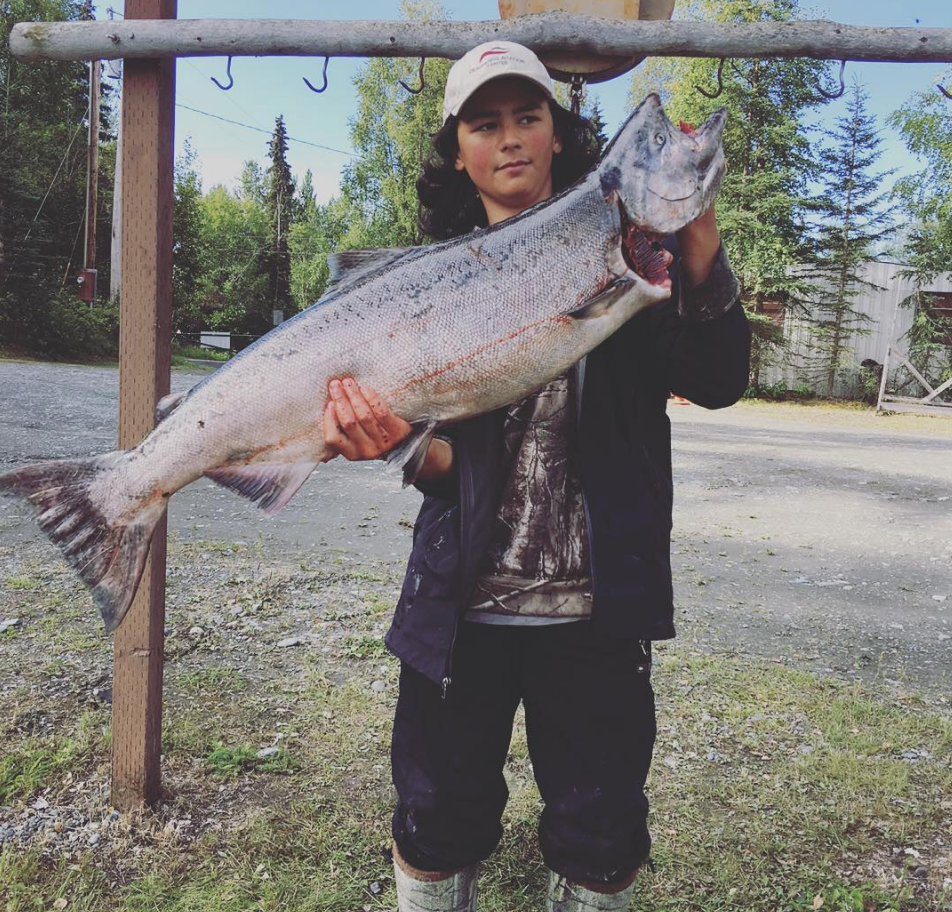From the moment he could walk, Sam Oozevaseuk Schimmel was a child with an agenda. Spending summers with his Siberian Yupik family in Alaska, he quickly took to the outdoors.
“He never was inside. He hunted and fished,” his dad, Jeremy Schimmel, told NPR. “He was catching fish when he was 2 — off the dock.”
At age five, he knew the names of numerous fish and how to use various nets and lures.
His verve and dedication to Alaskan life stood in contrast to the steady blows of generational trauma his family has dealt with over the last century. His grandma went to a school where the students were prohibited to use the languages they’d been raised with. Her uncertainty about her native identity was passed on to her daughter – Sam’s mother – who still cops with crippling depression.
https://www.instagram.com/p/Bi3a6plln5Q/
Despite this, his parents strived to give Sam a well-rounded upbringing connected to his roots. Sam, now 18 and about to take off for college, approaches his identity with the understanding that culture isn’t static, it changes. Intergenerational trauma is an irreversible part of his family’s identity, so now the questions he tackles are how he and his community can move beyond it.
“What I’ve seen is that when youth are not culturally engaged, you see higher rates of incarceration, higher rates of suicide, higher rates of alcoholism, higher rates of drug abuse — all these evils that come in and take the place of culture,” Sam told NPR. “We’re talking about my cousins and my family members.”
But for him, these weren’t reasons to give up on his past but were an opportunity to continue celebrating what his Alaskan heritage still offers him. The victim narrative may have claimed his grandmother, mother, and cousins, but it just wasn’t for him. This ever-evolving culture needs to be rebuilt and it’s a task he’s willing to take on.
“His Siberian Yupik culture in Gambell – that’s a living thing. It’s not a relic. It doesn’t belong to his ancestors, it belongs to him and he’s very comfortable in that,” Rebecca Hersher, a reporter for NPR, told Codeswitch.After having a distressing experience in public school, he switched to a private school and began to thrive. He was a youth representative at the Alaska Federation of Natives conference and served as a member of Alaska Gov. Bill Walker’s climate team. Recently, interned in Alaska’s congressional delegation in Washington, D.C. This fall he’ll be off to college. When considering Sam and all his parents have done to give him a good life, Hersher says told Codeswitch, “They’ve done a really amazing job creating something that’s very hard to create, which is a new tradition. You know, cultural traditions are living things.”



